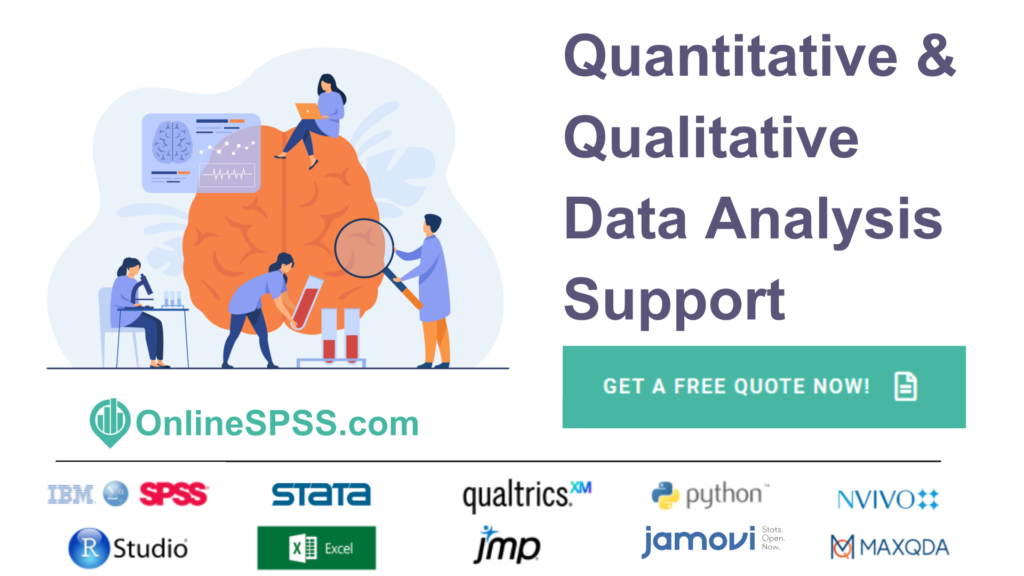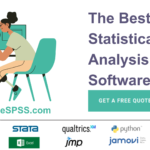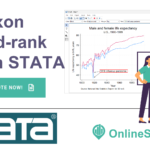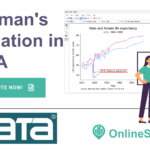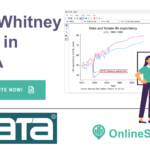Quantitative and Qualitative Data Analysis Support
Data analysis is a cornerstone of academic research, and understanding how to work with both quantitative and qualitative data can elevate your study’s credibility and impact. At OnlineSPSS.com, we provide professional Quantitative and Qualitative Data Analysis Support to guide students, researchers, and academics through every stage of their data analysis journey.
What is Quantitative Data Analysis?
Quantitative data analysis focuses on numerical data to identify patterns, relationships, and trends. It involves statistical techniques and tools to summarize and interpret data effectively.
Key Features of Quantitative Data Analysis:
- Data Type: Numerical (e.g., percentages, averages, frequencies).
- Purpose: To test hypotheses, measure variables, or identify relationships.
- Approach: Structured and objective.
- Common Methods:
- Descriptive statistics (e.g., means, medians, standard deviations).
- Inferential statistics (e.g., t-tests, ANOVA, regression analysis).
- Predictive modeling.
Examples of quantitative data include survey results, experimental outcomes, and numerical datasets. Tools like SPSS, R, and STATA are commonly used for this analysis.
What is Qualitative Data Analysis?
Qualitative data analysis focuses on non-numerical data, such as text, images, or interviews. This approach aims to understand the meaning and context of data through thematic exploration and interpretation.
Key Features of Qualitative Data Analysis:
- Data Type: Textual or visual (e.g., transcripts, field notes, videos).
- Purpose: To explore perceptions, behaviors, and motivations.
- Approach: Flexible and subjective.
- Common Methods:
- Thematic analysis.
- Content analysis.
- Narrative analysis.
Examples of qualitative data include open-ended survey responses, focus group discussions, and case studies. Tools like NVivo and MAXQDA are frequently used for this type of analysis.
Differences Between Quantitative and Qualitative Data Analysis
| Aspect | Quantitative Analysis | Qualitative Analysis |
|---|
| Data Type | Numerical (e.g., numbers, percentages) | Textual (e.g., words, images) |
| Objective | Test hypotheses and measure variables | Explore and interpret complex phenomena |
| Methods | Statistical tests (e.g., t-tests, regression) | Thematic coding, narrative analysis |
| Tools | SPSS, R, STATA | NVivo, MAXQDA |
| Outcome | Generalizable results | In-depth understanding |
Why Combine Quantitative and Qualitative Analysis?
Combining quantitative and qualitative approaches allows researchers to:
- Gain a comprehensive understanding of the research problem.
- Validate findings through triangulation.
- Address both numerical trends and contextual insights.
This mixed approach is particularly useful for complex dissertations, theses, or research projects that require diverse perspectives.
How We Help with Quantitative and Qualitative Data Analysis
At OnlineSPSS.com, we provide end-to-end support for your data analysis needs. Here’s how we can assist:
1. Quantitative Data Analysis Support
- Data Cleaning and Preparation:
- Handling missing data and outliers.
- Organizing datasets for statistical analysis.
- Statistical Analysis:
- Conducting descriptive and inferential statistics.
- Applying advanced methods like SEM and multivariate analysis.
- Interpretation of Results:
- Explaining statistical outputs clearly and concisely.
- Preparing results in APA or other academic formats.
Start your quantitative analysis by submitting your project on our Get a Free Quote page.
2. Qualitative Data Analysis Support
- Data Organization:
- Transcribing interviews and focus group discussions.
- Structuring data for thematic exploration.
- Analysis Techniques:
- Coding and categorizing textual data.
- Conducting thematic or content analysis using NVivo or MAXQDA.
- Visualizations:
- Creating visual representations of themes and relationships.
Get professional qualitative analysis support by visiting our Get a Free Quote page.
3. Integration of Quantitative and Qualitative Data
For mixed-methods research, we:
- Align quantitative and qualitative findings to address research questions comprehensively.
- Develop integrated visuals such as tables and figures.
- Write cohesive results sections that connect both data types.
 Submit your project today via our Get a Free Quote page.
Submit your project today via our Get a Free Quote page.
Tools We Use for Data Analysis
Our team is proficient in a variety of tools to support both quantitative and qualitative research:
- SPSS: For statistical testing and descriptive analysis.
- R Programming: Ideal for data modeling and visualization.
- STATA: Best for econometric and regression analysis.
- NVivo: Perfect for qualitative coding and thematic exploration.
- MAXQDA: Seamless integration for qualitative and mixed-methods analysis.
 Submit your project details on our Get a Free Quote page to leverage these tools effectively.
Submit your project details on our Get a Free Quote page to leverage these tools effectively.
Why Choose OnlineSPSS.com?
- Expertise Across Methods: Our team includes specialists in both statistical and thematic analysis.
- Tailored Services: We customize our approach based on your research needs.
- Affordable Pricing: High-quality services at student-friendly rates.
- Confidentiality Guaranteed: Your data and research remain secure.
- Timely Delivery: We respect deadlines and ensure on-time project completion.
Start your journey to professional data analysis by submitting your project on our Get a Free Quote page today.
Frequently Asked Questions (FAQs)
Q1: Can you help with standalone quantitative or qualitative analysis?
Yes, we offer dedicated support for either type of analysis based on your needs.
Q2: How long does data analysis take?
Timelines depend on project complexity, but most tasks are completed within 7–10 days.
Q3: What formats do you provide for results?
We deliver results in APA, Harvard, or any format specified by your institution.
Q4: Is my data secure?
Absolutely! We prioritize confidentiality and ensure your data is handled securely.
Q5: How do I get started?
Visit our Get a Free Quote page, share your project details, and we’ll guide you through the process.
Start Your Data Analysis Journey Today
Don’t let data analysis challenges hold you back. With OnlineSPSS.com, you’ll receive reliable, professional support tailored to your research needs.
Submit your project today on our Get a Free Quote page and take the next step toward academic success!
Follow us on LinkedIn
